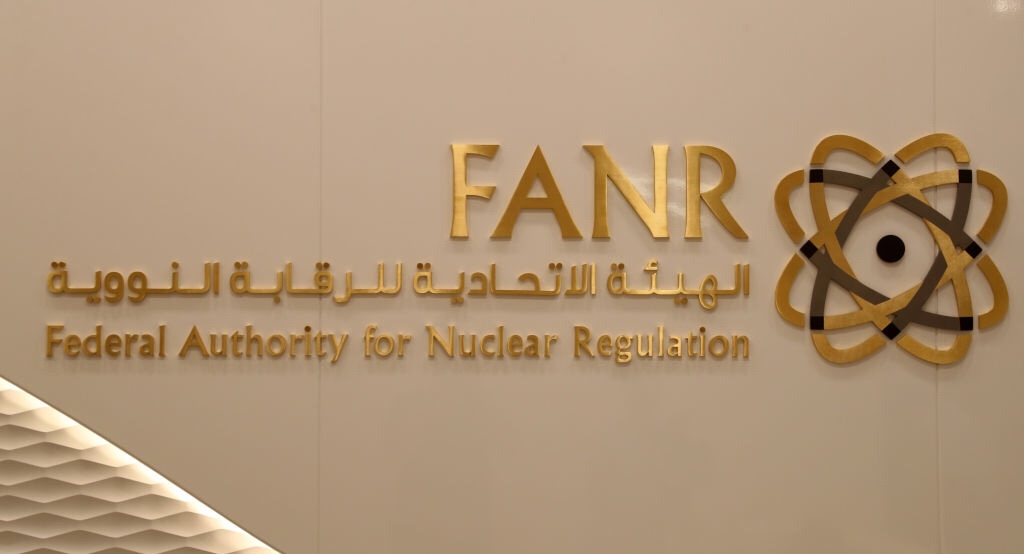 Report: Trump officials tried to fast-track nuclear tech transfer to Saudi Arabia
Report: Trump officials tried to fast-track nuclear tech transfer to Saudi Arabia
“Middle East Marshall Plan” appeared to be mostly about money for ex-generals, not policy.
by Sean Gallagher – Feb 20, 2019 11:06am MST
President Donald Trump is intent on a deal that allows Crown Prince Mohammed bin Salman Al Saud’s government to purchase nuclear technology built by US companies. There’s a small problem with that: it’s against the law.
Anadolu Agency / Getty Images
An interim report from the staff of the US House Committee on Oversight and Government Reform shows evidence that members of the Trump transition team and administration attempted to push through a plan from a consortium advised by former National Security Advisor Gen. Michael Flynn to sell nuclear technology to the Kingdom of Saudi Arabia. The plan would have led to the construction of 40 nuclear power plants and facilities to enrich uranium fuel. The technology, while focused on civil nuclear power, could give the Saudis resources that could be used to build nuclear weapons. The plan would also have pumped billions into a number of US companies involved in the nuclear industry, including the bankrupt nuclear services company Westinghouse Electric—which would have build the reactors.
Jeffrey Lewis, a nonproliferation expert at the Middlebury Institute of International Studies, told NPR’s Ari Shapiro in an interview that the details in the report were “bonker-balls…can’t come up with a better word. It’s one of the most amazing things I’ve ever seen. It’s a half-baked, grandiose plan with all kinds of things that could go wrong in it and people screaming at them to stop. And they don’t stop.”
Despite repeated wave-offs by national security officials, members of the White House team and Trump confidants outside the White House—including Tom Barrack, the chairman of the Trump inauguration committee and a close friend of the president—continued to press forward on the scheme. Barrack, who urged Trump to take on Paul Manafort as his campaign manager, also tried to broker a secret meeting between Manafort and the crown prince of Saudi Arabia, according to a New York Times report.
We’re simply making plans for Michael
The effort was part of what was labeled the “Middle East Marshall Plan,” a package advanced by IP3 International, a private company led by a retired admiral and with a board of assorted retired Army and Marine Corps generals, former Republican administration officials, and congressmen. Flynn signed on as an advisor to IP3 just before joining the Trump transition team. The Saudi nuclear sales push is the entire focus of the company.
According to the House report, Derek Harvey—the senior director for Middle East and North African Affairs for the National Security Council from January to July 2017—told NSC staff members immediately after Trump’s inauguration that Flynn had decided to adopt IP3’s plan to develop “dozens of nuclear power plants” in Saudi Arabia during the transition while he was still serving as an advisor to IP3. Harvey also said that Barrack would be made a special representative, with credentials equivalent to an ambassador, to guide the plan.
On January 27, Harvey met with representatives of IP3, including its co-founders, retired General Jack Keane, Reagan administration National Security Advisor Robert McFarlane, and a group of other retired generals working with the firm. Immediately after the meeting, Harvey told NSC staffers to add information about IP3’s “plan for 40 nuclear power plants” to the briefing package for President Trump’s call with Saudi Arabia’s King Salman—stating that “this was the ‘energy plan’ that had been developed and approved by General Flynn during the presidential transition,” according to the report.
The IP3 plan draft was sent to Flynn on January 28, 2017 by McFarlane, a board member of IP3 and co-founder of the US Energy Security Council. The email said, “In the enclosed memo you would call upon the relevant cabinet officers to lend their support to this historic program. I recommend that you sign it.”
The draft memo, written to be signed by Flynn, stated, “Tom Barrack has been thoroughly briefed on this strategy and wants to run it for you. He’s perfect for the job. Rex [Tillerson, then Secretary of State] and [Defense Secretary] Jim [Mattis] are supportive of Tom’s focus on this also.”
Enlarge / An email from Robert McFarlane to National Security Advisor Michael Flynn giving him direction to pitch a plan to sell nuclear tech to Saudi Arabia.
Laws, shmaws
After Harvey’s pronouncement of the plan, career NSC staffers warned him that “any transfer of nuclear technology must comply with the Atomic Energy Act, that the United States and Saudi Arabia would need to reach a 123 Agreement, and that these legal requirements could not be circumvented.”
Section 123 of the Atomic Energy Act requires that countries receiving nuclear technology from the US must comply with a number of requirements focused on nonproliferation of nuclear weapons, including a guarantee that transferred nuclear material, equipment, and technology will not have any role in nuclear weapons development or any other military purpose, except in the case of cooperation with nuclear-weapon states. Enrichment of nuclear fuel must be covered under a separate agreement and must be overseen by the International Atomic Energy Agency. The law also dictates that the US can demand the return of any transferred equipment if the IAEA reports a violation.
Harvey was reported to have ignored the warnings and continued to insist that the decision had already been made. The House report states:
Both career and political staff inside the White House reportedly agreed that Mr. Harvey’s directive could violate the law. One senior political official stated that the proposal was “not a business plan,” but rather “a scheme for these generals to make some money.” That official stated: “Okay, you know we cannot do this.” Yet, just days after the President’s inauguration, IP3 officials sent documents directly to General Flynn for President Trump to approve, including a draft Cabinet Memo stating that the President had appointed Mr. Barrack as a special representative.
Even after the NSC legal advisor John Eisenberg ordered a stop to all work on the plan and senior officials told IP3 representatives to take their plan through normal government agency channels, Harvey persisted. McFarlane continued to push to get the plan in front of Trump, sending an email to Harvey with a subject line reading, “We’re Very Close to Losing Our Position in the Middle East.” McFarlane sought “a public US government statement or letter of support for the IP3 plan, ideally ahead of then-Saudi Deputy Crown Prince Mohammed bin Salman’s visit to Washington, D.C.,” the congressional staff report states.
Harvey managed to work the plan into Trump’s agenda for the March 2017 meeting with then-Deputy Crown Prince Mohammed bin Salman in the Oval Office, and his “readout” of the meeting included a reference to “a new United States-Saudi program… in energy, industry, infrastructure, and technology worth potentially more than $200 billion in direct and indirect investments within the next four years.” Nobody else in the NSC had been aware of any such plan.
But the seed was planted, and Trump has continued to be “directly engaged in the effort, maintaining contact with IP3 about the plans and expressing his support for the transfer of nuclear technology to Saudi Arabia,” the report states. “These reports also indicate that Saudi Arabia is refusing to agree to prohibitions on enriching uranium and processing plutonium similar to those agreed to by other countries in the region.”
Gold’s not about cash in this case
Enlarge / The UAE’s Federal Authority for Nuclear Regulation (FANR). UAE signed an agreement to never seek technology to enrich uranium or plutonium as part of its 123 Agreement with the US, making it the “gold standard” for nuclear power technology transfer and nonproliferation.
That’s a reference to the “Gold Standard” for Section 123 agreements in nonproliferation circles, set by the 2009 agreement between the US and the United Arab Emirates, in which the UAE declared it would never pursue fuel enrichment and reprocessing technologies. Saudi Arabia has never signed such an agreement, and it has repeatedly refused to consider one—a point raised by Republican Senators Marco Rubio, Todd Young, Cory Gardner, Rand Paul, and Dean Heller in an October 31, 2018 letter to President Trump urging him to not go forward with a nuclear power agreement.
“We remain concerned that the Saudi Government has refused, for many years, to consider any agreement that includes so-called ‘Gold Standard’ requirements against pursuing technologies to enrich uranium and reprocess plutonium-laden spent nuclear fuel,” the senators wrote in their letter to Trump. The murder of Washington Post columnist Jamal Khashoggi, the Saudi-led bombing of Yemen, and apparent interference in the government of Lebanon, the senators noted, “have solidified our reservations about pursuing a potential US civil nuclear agreement with Saudi Arabia, and increased our willingness… to block such an agreement at this time.”
No banner ads. No tracking. Just content.
Subscribe to ad-free Ars Pro for the best reading experience and subscriber-only perks, while directly supporting the content you love.
Sean Gallagher / Sean is Ars Technica’s IT and National Security Editor. A former Navy officer, systems administrator, and network systems integrator with 20 years of IT journalism experience, he lives and works in Baltimore, Maryland.



No comments:
Post a Comment